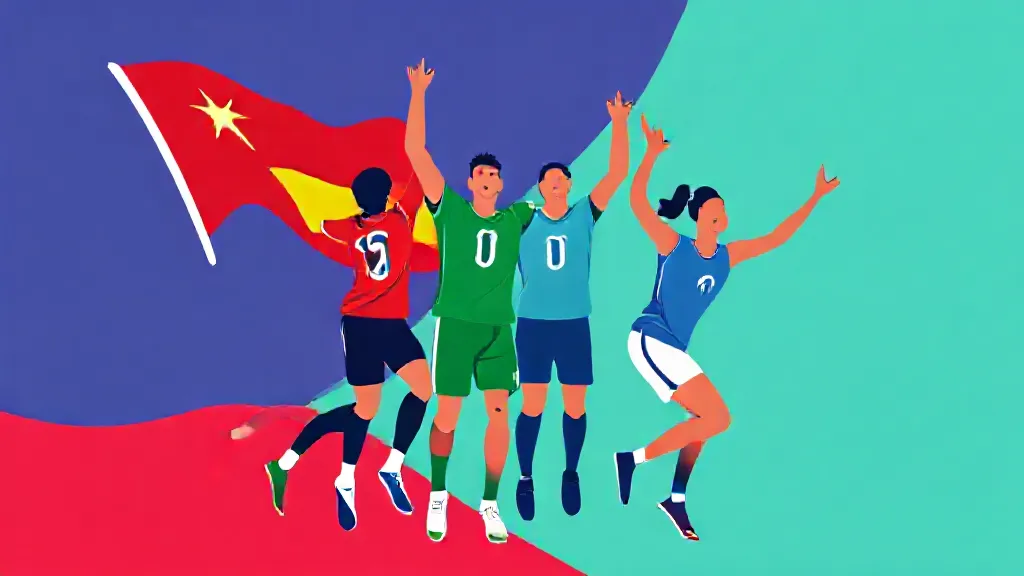Sports have long been a powerful medium for fostering global unity, transcending geographical, cultural, and linguistic barriers. The universal appeal of sports has the ability to bring together individuals from diverse backgrounds, creating a shared experience that promotes understanding and camaraderie. This article delves into the multifaceted ways sports inspire global unity, examining historical events, international competitions, and grassroots initiatives that exemplify this phenomenon.
The Historical Context of Sports as a Unifying Force
Historically, sports have served as a platform for unity during times of conflict and division. The Olympic Games, dating back to ancient Greece, were established as a means to promote peace and mutual respect among city-states. The modern revival of the Olympics in 1896 by Pierre de Coubertin aimed to foster international friendship through competitive sports.
This vision has been realized through various Olympic editions, where athletes from around the world come together, transcending political and cultural differences, to compete in the spirit of friendship and respect.
International Competitions and Their Impact on Global Unity
International sporting events, such as the FIFA World Cup and the Rugby World Cup, have a profound impact on global unity. These events not only showcase athletic excellence but also bring together nations and cultures, fostering a sense of belonging and shared identity.
The FIFA World Cup, for instance, has been celebrated as a festival of global unity, where fans from different countries gather to celebrate their love for the game. The 2010 World Cup in South Africa was particularly noteworthy, as it marked the first time the tournament was held on the African continent, symbolizing a significant step towards inclusivity and representation in global sports.
Grassroots Sports Initiatives Promoting Unity
Beyond elite competitions, grassroots sports initiatives play a crucial role in promoting unity at the community level.
Programs that focus on youth engagement through sports have been successful in bridging divides in conflict-ridden areas. For example, organizations like PeacePlayers International use basketball as a tool for reconciliation among youth in divided communities, such as those in Israel and Palestine. By fostering teamwork and communication, these initiatives help to build trust and understanding among young people from different backgrounds.
The Role of Technology in Enhancing Global Sports Unity
In the digital age, technology has further enhanced the ability of sports to inspire global unity. Social media platforms allow fans to connect and share their passion for sports, regardless of their location. This connectivity creates a global fanbase that celebrates diversity and promotes inclusion.
During major sporting events, hashtags and online campaigns often go viral, uniting fans around common causes, such as anti-racism or gender equality in sports. The #BlackLivesMatter movement, for instance, gained significant traction within sports communities, demonstrating the potential of sports to be a catalyst for social change.
Cultural Exchange Through Sports
Sports also serve as a vehicle for cultural exchange, allowing individuals to learn about and appreciate different cultures.
Events like the Olympics and the World Cup highlight not only athletic prowess but also cultural traditions, music, and cuisine from participating nations. This cultural showcase fosters mutual respect and understanding, as athletes and fans engage with one another, sharing their customs and stories. Such interactions help to break down stereotypes and promote a sense of global citizenship.
The Influence of Sports Icons on Global Unity
Sports icons often play a pivotal role in inspiring global unity. Figures like Nelson Mandela, who famously used rugby as a tool for reconciliation in post-apartheid South Africa, exemplify how sports can transcend political and social divides. Athletes like Muhammad Ali and Jackie Robinson have also used their platforms to advocate for social justice, highlighting the responsibility of sports figures to promote unity and equality.
Their legacies continue to inspire new generations of athletes to use their influence for positive change.
Challenges to Global Unity Through Sports
Despite the unifying potential of sports, challenges remain. Issues such as nationalism, racism, and inequality can overshadow the positive aspects of global sporting events.
Instances of fan violence and discrimination highlight the need for ongoing efforts to promote inclusivity and respect within sports. Organizations like the International Olympic Committee and FIFA have taken steps to address these challenges, implementing policies aimed at fostering diversity and ensuring that sports remain a platform for unity rather than division.
Looking Ahead: The Future of Sports and Global Unity
As the world becomes increasingly interconnected, the role of sports in inspiring global unity is more critical than ever.
Future initiatives that focus on inclusivity, accessibility, and cultural exchange will be essential in harnessing the power of sports to bring people together. By continuing to promote understanding and respect through sports, we can build a more harmonious global community, where individuals from all walks of life come together to celebrate their shared love for athletic competition and the values it represents.
